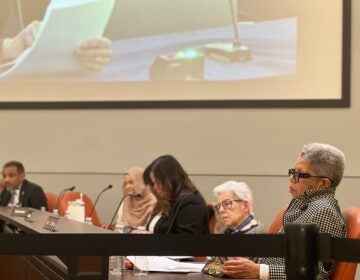Philly SRC votes to phase out two middle schools, not close immediately
-

-

-

-

-
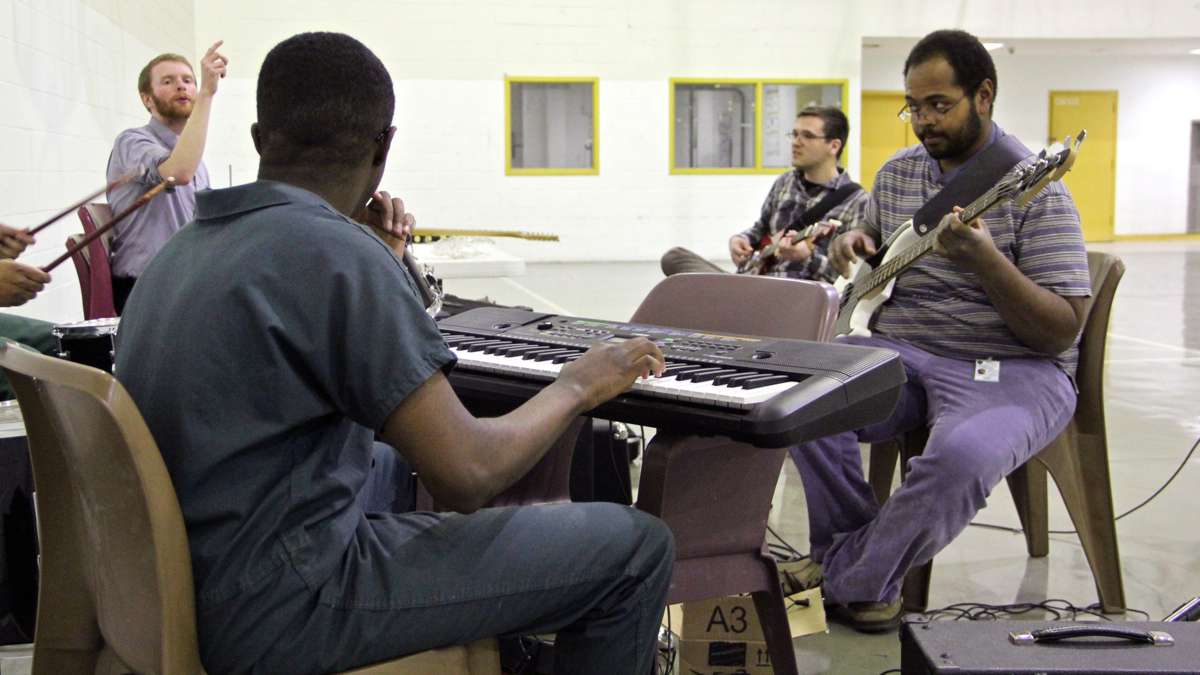
-

-
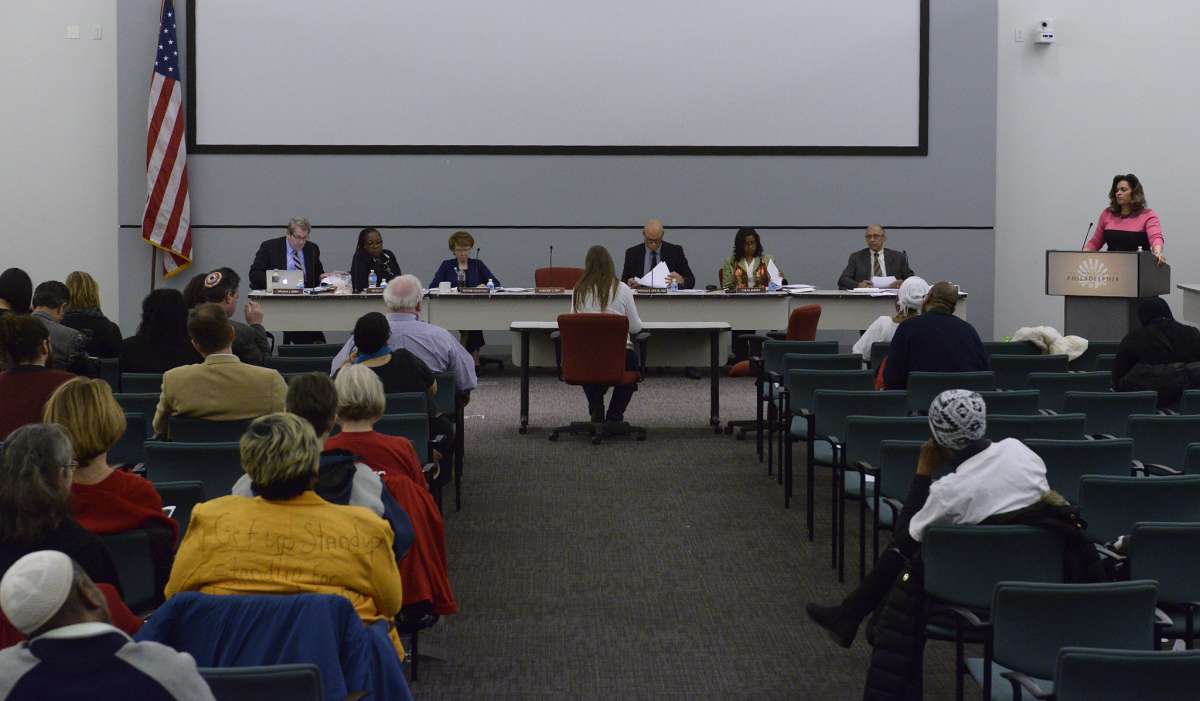
-
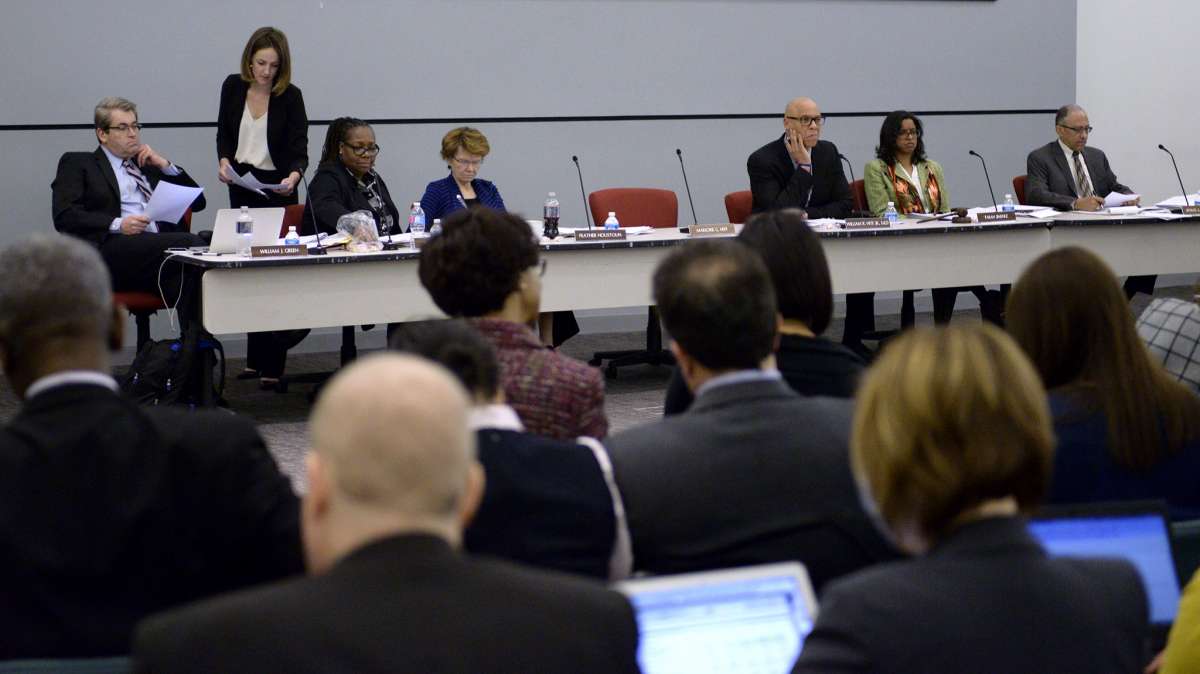
-
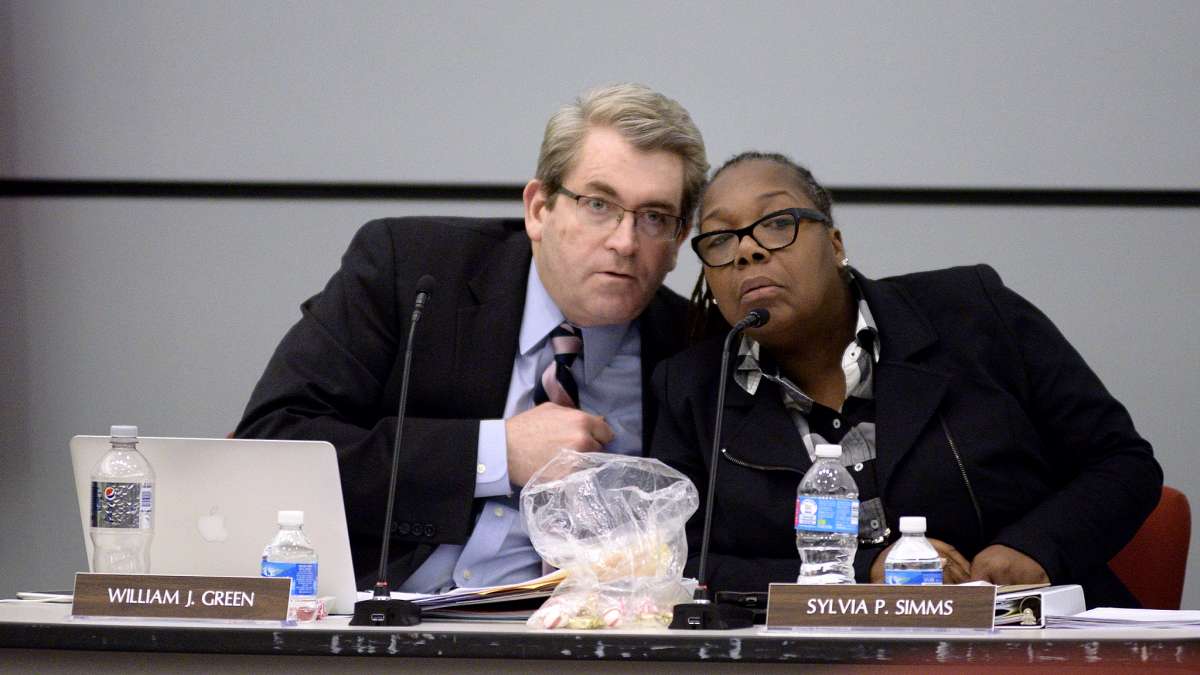
School Reform Commission members Bill Green and Sylvia Simms confer at Thursday's meeting, during which the board decided to close two underperforming middle schools. (Bastiaan Slabbers/for NewsWorks)
-
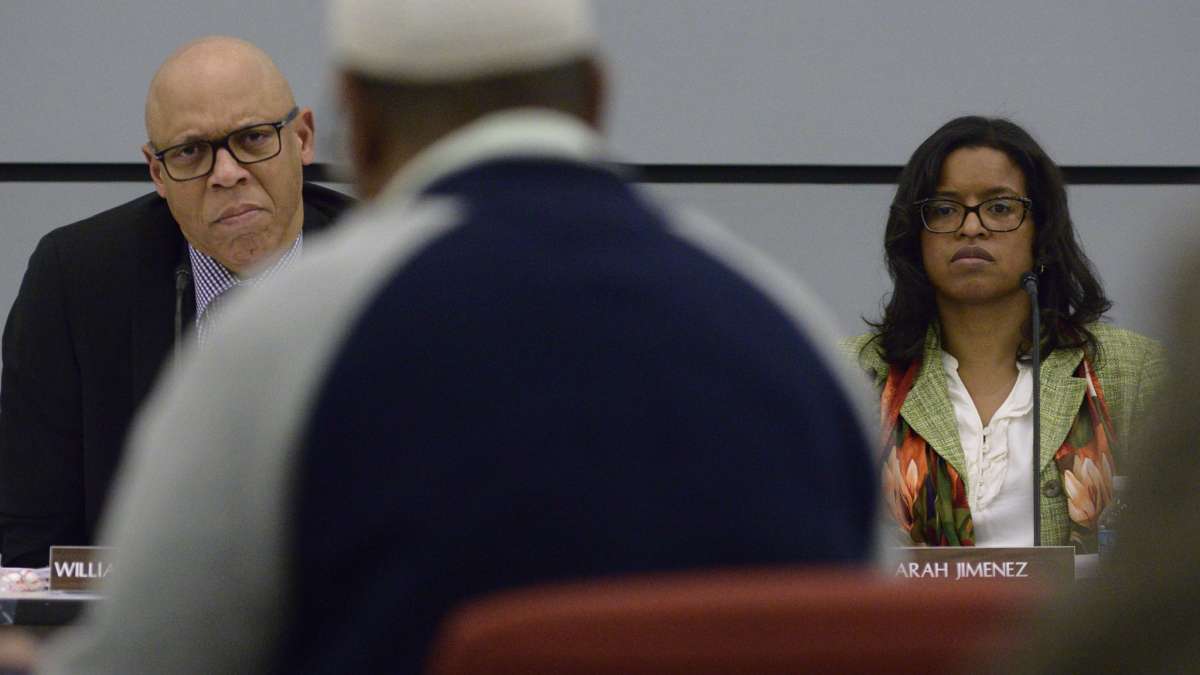
-

-
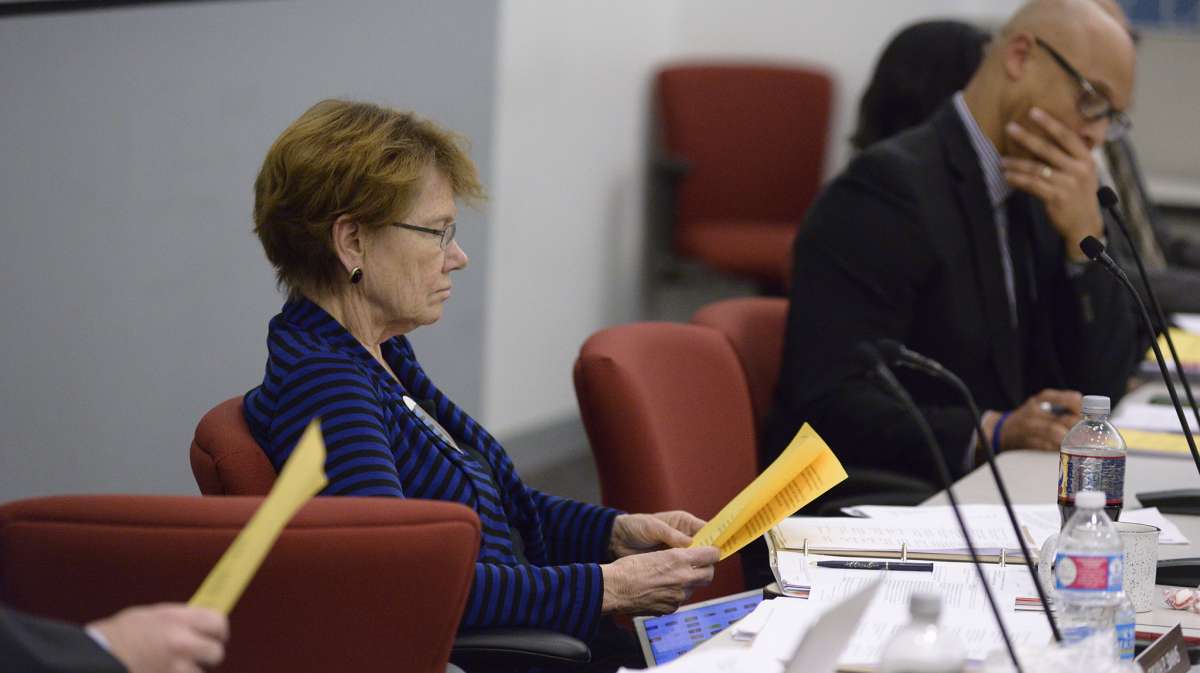
-
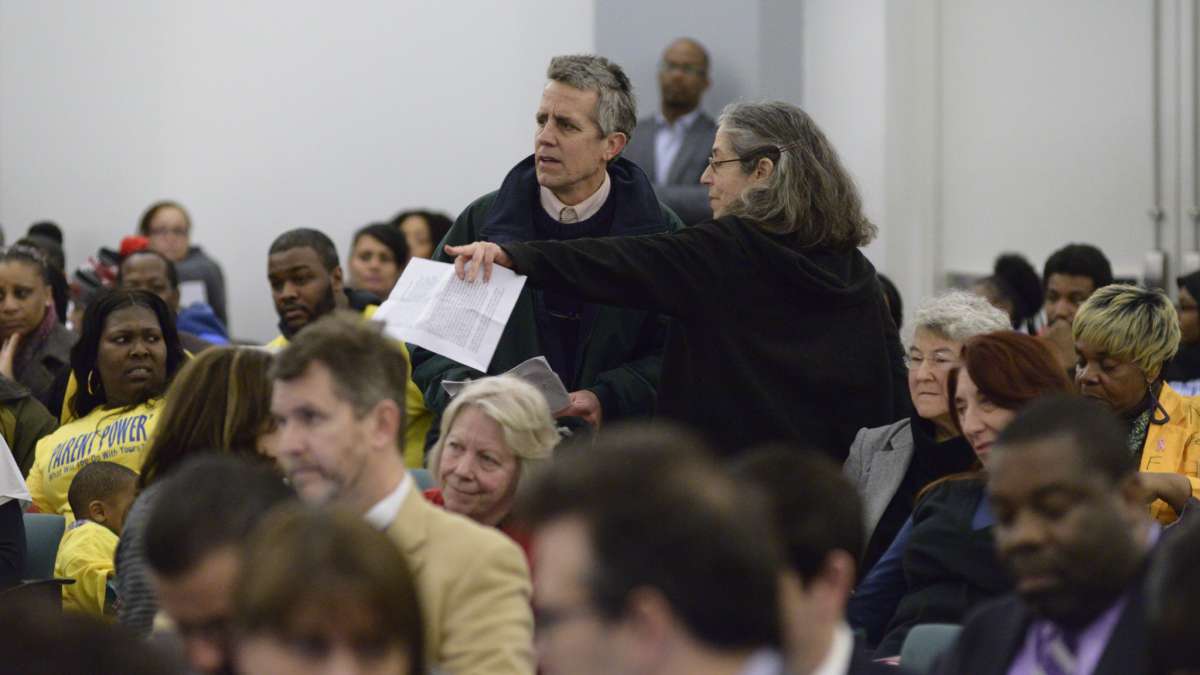
-
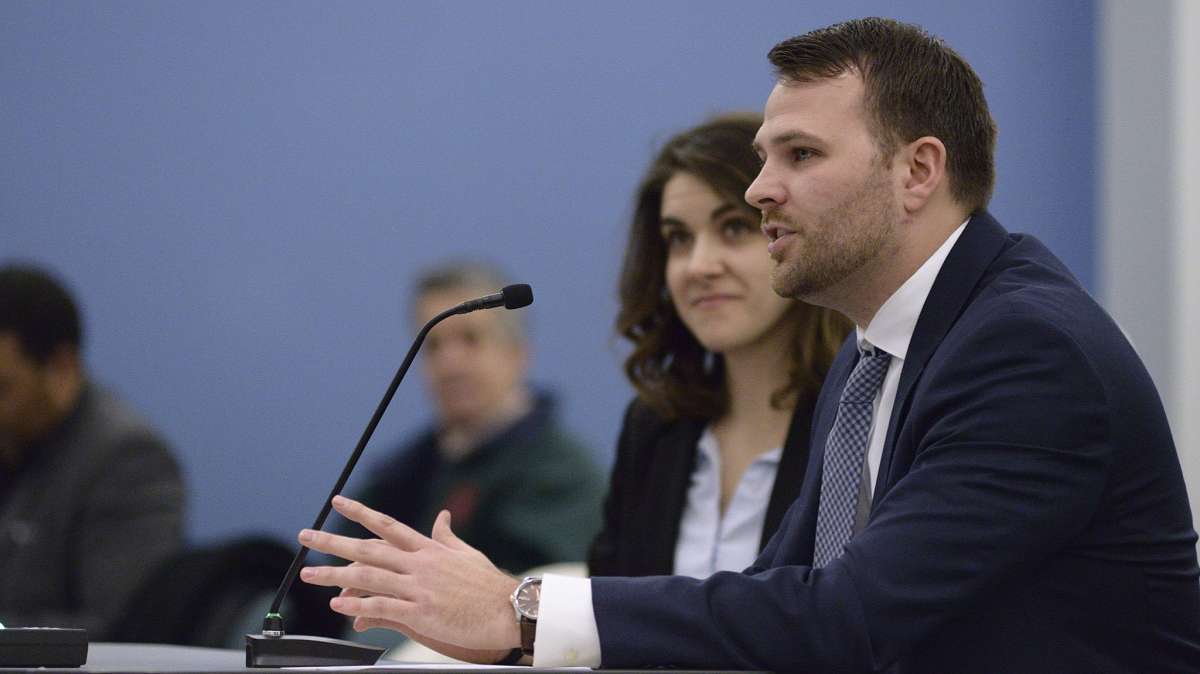
-
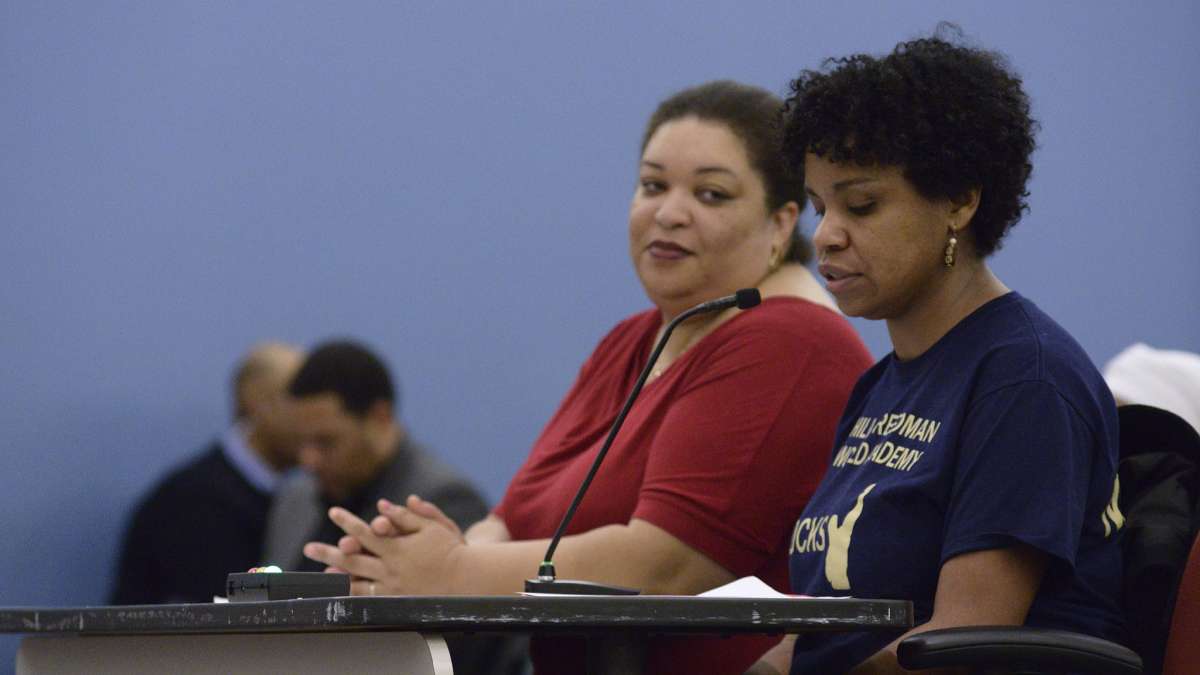
-
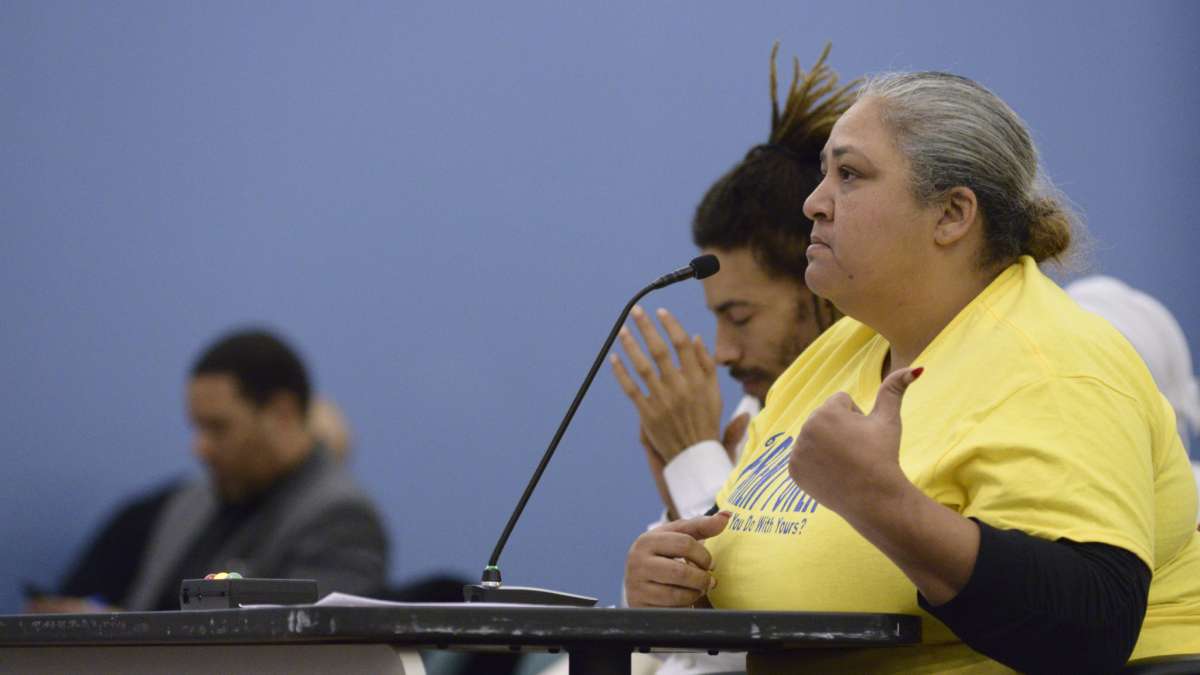
-

-
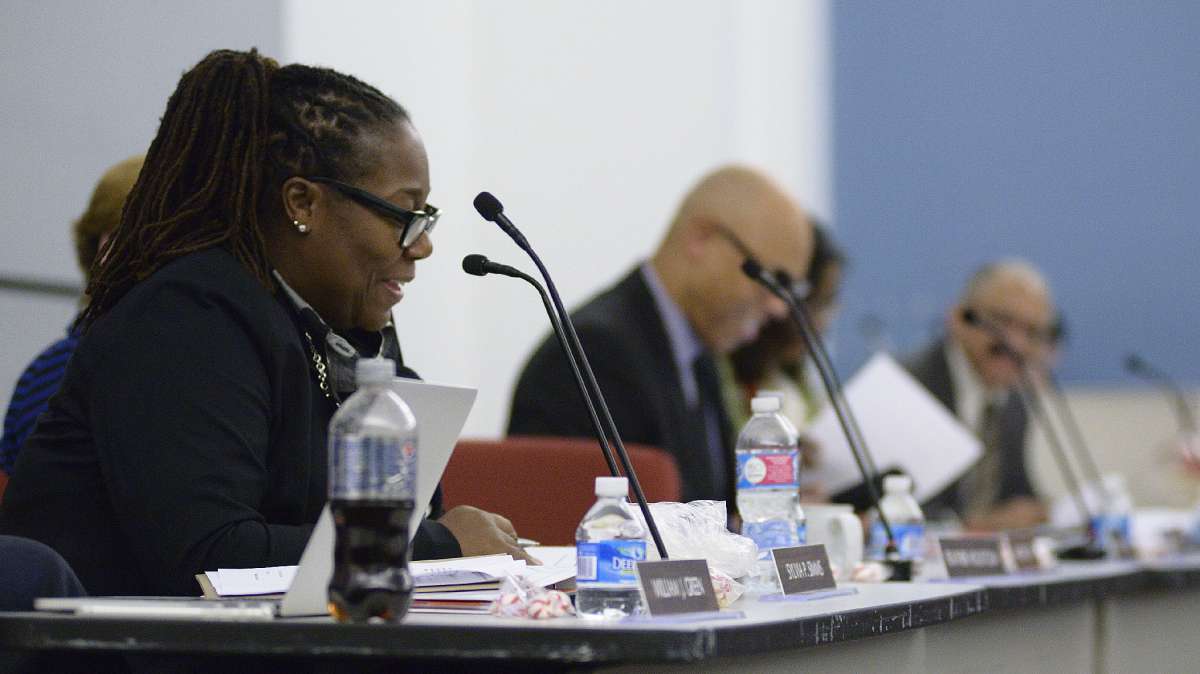
-

-

-
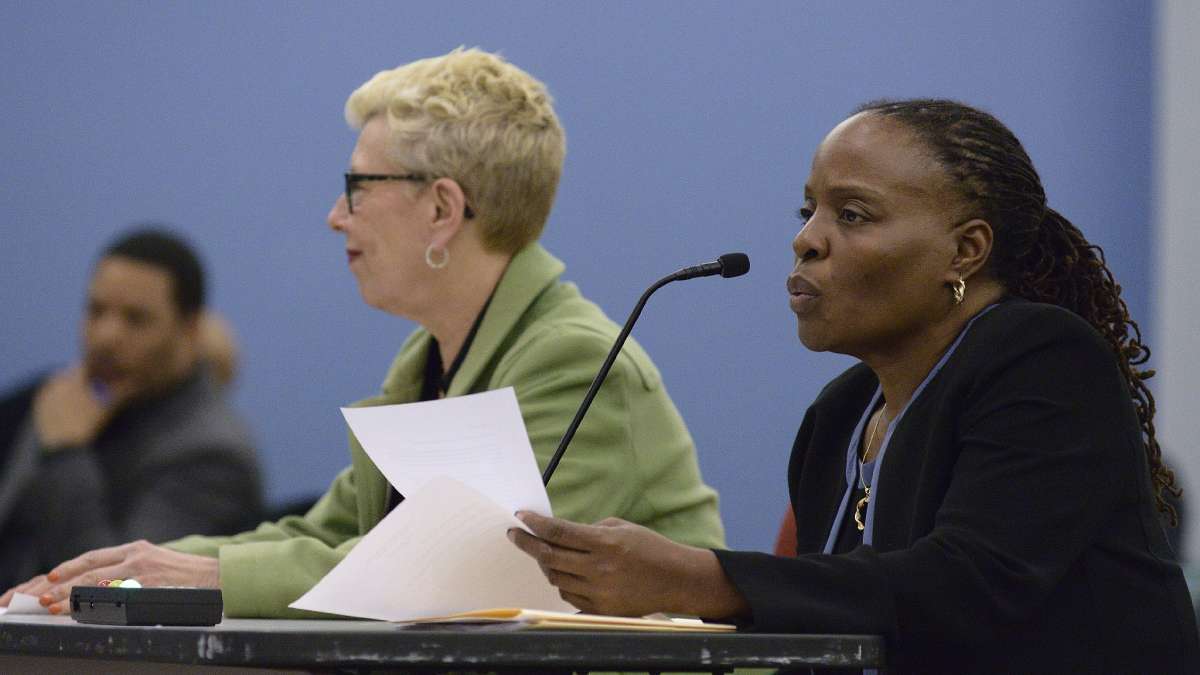
The Philadelphia School Reform Commission voted to phase out two chronically low-performing middle schools Thursday night.
While there was scant pushback about the closures themselves, some parents expressed concerns about the stress placed on the other schools that will be affected.
The SRC voted to gradually close Dimner Beeber middle school in West Philadelphia and Morris Leeds Middle school in the Northwest. All current students at both schools can remain in their buildings until they matriculate into high school.
In the meantime, the schools will not accept additional students from their respective feeder elementaries. Each of Beeber’s K-5 feeder schools — Overbrook Elementary, Samuel Gompers Elementary and Lewis C. Cassidy Academics Plus School — will grow year-by-year to add sixth, seventh, and eighth grades.
An expansion to eighth grade will also occur for Leeds’ feeder elementary schools — Franklin S. Edmonds and Samuel Pennypacker.
Some parents questioned the district’s readiness to deal with the logistics of the elementary expansions.
Will the cash-strapped district be able to provide all the supports needed for the transition? Will having older kids in the elementaries change their cultures? Is the infrastructure of those elementary buildings ready to take on new grades and more kids?
West Philadelphia parent Cecelia Thompson is very concerned about the last point. She spent years volunteering at Gompers K-5 elementary.
“I know that school inside and out, and the one year they made it 6th grade, the 6th graders were in this trailer that was cold most of the time. They were sitting up there with their coats on, so I know there’s no room for 7th grade,” said Thompson.
Thompson’s testimony caught the attention of a few of the commissioners, specifically Feather Houstoun, who then questioned the district staffers.
Chief Operating Officer Fran Burns said she repsected Thompson’s input as she defended the viability of the district’s plan.
“I have that shared respect and confidence in our director of capital programs. Our research and our evaluation of the space — in order to support a recommendation that is in the best interest of students — is based on that firm confidence,” said Burns.
With its vote to phase out Leeds middle school, the SRC authorized Hill-Freedman magnet school (6-12) to move into the Leeds building next year.
For the next two years, Hill-Freedman’s magnet school student’s will be merged with Leeds’ historically underperforming population.
Hill-Freedman leaders feel confident that they can overcome the challenges inherent in that move, but some of the magnet-school parents are wary.
Katrina Clark implored the SRC to oversee the transition diligently.
“Ensure that the principal has your full support when needed, and that all that his wishes on that wonderful list that I saw are delivered,” she said.
The SRC also approved the technical-closure of Gen. Harry LaBrum middle school in the Far-Northeast. But the decision changes nothing. The school has already been acting as a second campus of nearby John Hancock elementary.
After the meeting, Superintendent William Hite pledged to ensure that all the transitions will go smoothly, and emphasized that the phase out plan will not displace any child from his or her school.
“We learned from that process when we were just wholesale moving children around. And now this is a process where children are staying where they are, and then transitioning through the higher grades,” said Hite.
Hite also expounded on the implications of this week’s landmark Pennsylvania Supreme Court decision that stripped the School Reform Commission of its special powers.
The SRC had been using those powers to suspend provisions of the school code and the charter law. The Court’s ruling now forbids the district from unilaterally capping charter school enrollment.
“Absolutely I’m worried about what it means,” he said, “because if we don’t have the ability to control cost – and we can’t if in fact large numbers of, let’s say charters, choose to just go beyond their cap — that could present a problem for us.”
Hite added that the decision should undercut efforts to dissolve the majority state-appointed commission.
“A lot of the tools that the governing body had, have been removed, and so whether its an elected school board, an appointed school board, a commission, it doesn’t matter,” said Hite. “They still don’t have those tools. And they will still be faced with the same economic challenges that their predecessors have been faced with.”
Hite hopes the Pennsylvania legislature will write new laws that will help the district better keep its costs in line.
Hite said the silver lining is that 78 of the 84 charters currently do have signed agreements that limit enrollments. The SRC will now have much less leverage, though, as charters come up for renewal and it attempts to negotiate new caps.
WHYY is your source for fact-based, in-depth journalism and information. As a nonprofit organization, we rely on financial support from readers like you. Please give today.



